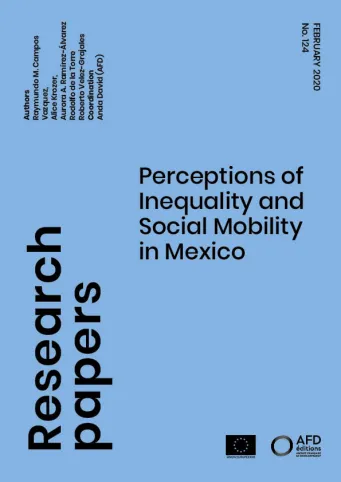Share the page
Perceptions of Inequality and Social Mobility in Mexico
Published on

Despite evidence of high inequality and low social mobility throughout the world, there has been only limited demand for change. Using new survey and experimental data, we investigate how perceptions about inequality and social mobility affect preferences for redistribution in Mexico. In addition to the perceived level of inequality typically measured in previous studies, we explore perceptions about who is rich and poor and their share of the population. The shape of perceived inequality that we find provides new insights as to why people tolerate large differences between the rich and the poor. We find that Mexicans generally perceive poverty and inequality not too far from measured levels, but they overestimate the income of the rich and their proportion of the population. Their perceptions of social mobility correctly estimate persistence rates at the top and bottom of the distribution, but they overestimate upward and downward mobility. Providing people with more information about observed income inequality and social mobility is one way to encourage a demand for redistribution. However, randomly providing selected participants with this information has almost zero effect on their desired levels of equality, social mobility, and tax rates. We measure the degree of tax progressiveness people want and calculate whether it is consistent with the level of equality they seek. We find that Mexicans want a progressive tax system in which the poor pay an average tax rate of 14% and the wealthy pay 41%, and that preference for a more progressive tax structure is negatively related to wealth. Our analysis shows, however, that the post-tax but pre-transfer income distribution respondents want is not consistent with these tax rates.
Useful Information
-
Authors
-
Raymundo M. Campos-Vazquez, Alice Krozer, Aurora A. Ramírez-Álvarez, Rodolfo de la Torre, Roberto Velez-Grajales
-
Coordinators
-
Anda DAVID
-
Edition
-
124
-
Number of pages
-
53
-
ISSN
-
2492 - 2846
-
Collection
-
Research Papers
